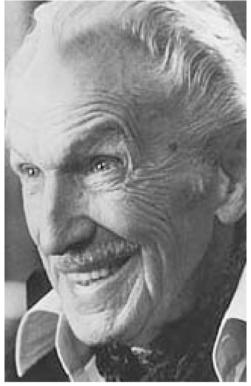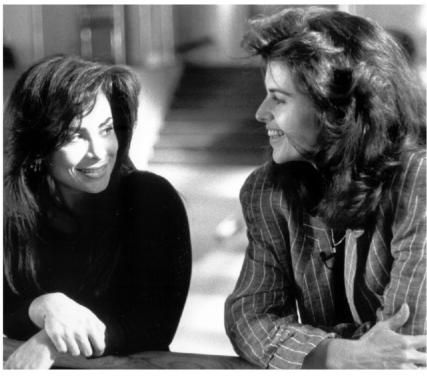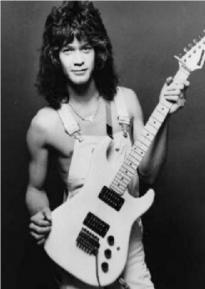Jacko, His Rise and Fall: The Social and Sexual History of Michael Jackson (34 page)
Read Jacko, His Rise and Fall: The Social and Sexual History of Michael Jackson Online
Authors: Darwin Porter

McCartney had already contributed "The Girl Is Mine," which was the
first solo release from the album. The song peaked at number two on
Billboard's chart, but it was a mere warm-up act, not a harbinger of what was about to happen to this album.
Songs written by Temperton ("The Lady In My Life" and "Baby Be
Mine") were also selected for Thriller, as was "PYT (Pretty Young Thing)," a
joint effort of Quincy and James Ingram. All these songs were solid pop numbers and contained in the words of Nelson George, "snappy rhythm tracks and
bright, immaculate arrangements."
The title cut was another Temperton tune, and it appealed to Michael's
fascination with the supernatural. The recording was climaxed by a camp horror rap by the actor Vincent Price, "king of the macabre." Despite his towering height, large body, and a propensity to marry, Price was quite effete. Tout
Hollywod knew he was gay. Upon meeting Michael, Price was so attracted to
him that he made a pass. Informing Price that he was a Jehovah's Witness, a
cult that "abhorred homosexuality," Michael turned down the proposition.
The star of countless horror films, Price worked on both the song on the
album and in the video of the same name. For his work, he agreed to accept a
flat fee of $20,000. If Price's agent had made a deal for his client to get a percentage of the total sales, the actor would have "won lotto," as he himself later
admitted.
"Jackson gave me the shaft," Price later charged, "and no pun intended."
He recalled that two of the Jackson brothers-"I can't remember their
names"-showed up at his doorstep with a gold record plaque. Price was gracious to the brothers. But once the door was closed in their faces, he went into
a rage. "What in the fuck am I supposed to do with this shit? Erect a shrine to
it?"
Although initially attracted to Michael, Price became more and more bitter as Thriller went on to become the biggest selling album of all time. In the
early 90s, when a reporter asked Price if he thought the child molestation
charges against Michael were true, Price had a sarcastic reply. "They must be
true," he said. "After all, Michael Jackson fucked me too."
In "Wanna Be Startin' Somethin'," Michael rants against gossip and
unwanted babies and compares himself to a vegetable on a buffet that fans can
take a bite out of. He was obviously referring to fans grabbing and tearing at
his hair and clothes.
The gorgeous dance ballad, "Human Nature," was the creation of John
Bettis and Steve Porcaro. It allows Michael to express a certain sexuality.
Back in those days he was still a handsome black man and could be taken seriously by young girls as a sex object.
But in retrospect, most of the success of Thriller as a whole was because
of Michael's own songs, notably "Billie Jean," which even today is still his
signature. In the song, Billie Jean is a bad lady, accusing Michael of fathering
her child ("but the kid is not my son," the song claims). In real life, such an event would happen to Michael several times, as young girls showed up at the
gates of Hayvenhurst with children in tow, each claiming that Michael was the
father. One white woman evaded security guards and was eventually discovered inside the compound. The two sons who accompanied her were very
Nordic looking, each boy with almost platinum blond hair.
Such women were said to be the inspiration for Michael to write "Billie
Jean." But there is a more compelling story. "Ms. Paula Abdul is the infamous
`Billie Jean' of the song," Enid Jackson once charged. She was married to
Michael's brother, Jackie. "Michael wrote the song to vent his anger against
Abdul and Jackie for having an eight-year affair while Jackie was married to
me."
Other critics have suggested that Michael wrote the song to deflect suspicion about his own sexuality.
Before she became one of the most famous pop singers in the world, Paula
Abdul-known for such hits as "Forever Your Girl," "Rush Rush," and
"Straight Up"-had been an LA Lakers cheerleader. One day at a basketball
game, she approached Jackie to ask him for his autograph. It wasn't long
before Abdul was getting more than Jackie's autograph.
Even while still a teenager, she was also making a name for herself as a
very talented choreographer. Jackie hired her to do the choreography for the
video of the song, "Torture," in which Michael did not participate. Janet was
so impressed with Abdul's work on the video that she also hired her to do choreography on her album, Control.
By then, Michael had long ago heard of his brother's affair from Enid.
Reportedly, he was "uber-pissed" at what he felt was a betrayal from Janet.
Enid alleged that Abdul once called her from
the hospital, claiming that she was having an
abortion and naming Jackie as the father.

Vincent Price
When confronted with this allegation, Jackie
denied the affair. But secretly, he continued to
meet with Abdul. A suspicious Enid trailed her
husband one night and caught Jackie with
Abdul in the back seat of the Jackson family's
Land Rover, a confrontation rumored to have
ended in violence.
In time, this long-running affair between
Jackie and Abdul would end in a divorce that
was finalized in August of 1987.
Enid was Michael's favorite sister-in-law,
and he deeply regretted the break-up of her
marriage to his brother. Some of his bitterness about the affair definitely spilled over into "Billie Jean."
One of the most ridiculous rumors ever circulated about Michael was that
Abdul had abandoned Jackie and moved in with Michael at Neverland. When
questioned about this, Michael said, "I admire the talents of Miss Abdul on a
professional level. As a person, I hate her!"
In 2005, Abdul made a comeback as a judge on Fox Television's Reality
Show, American Idol.
Although he may not have admitted this lapse of musical judgment in his
memoirs, Quincy Jones reportedly did not want to include "Billie Jean" in the
Thriller album. Angered that his judgment was being questioned, Michael
telephoned Yetnikoff, demanding that Quincy's name be removed from the
album. The music mogul tried to pacify Michael, knowing that Quincy could
have sued if his name had been erased.
In its own way, "Beat It" made history in the music industry. In a
crossover move, "Beat It" was suddenly played throughout the land on "white
rock stations" that rarely featured songs by black performers. "Beat It" was a
heavy-hitting rock song that featured Eddie Van Halen, the rock guitar genius.
Quincy remembered that at one point the music was so hot that an electronic amplifier burst into flames. "I've never seen anything like that in forty
years in the business." Ever since, "Beat It" has been singled out as the first
song that cracked the rock radio color barrier.
Released as a single, "Billie Jean" began at a lukewarm number 47 on
Billboard's chart of the top 100, but within six weeks shot to the top. The third
single release from the album, "Beat It" also shot to number one on the charts.
Michael became the first artist in Billboards history to have number one
records on both the black
and pop charts.
But the phenomenal
success of Thriller lay in
the future. When Quincy,
Michael, and the crew first
assembled to hear the final
mix of the album, Westlake
Studios was permeated with
gloom and doom. The
album was pronounced a
disaster.

Paula Abdul with Maria Shriver, 1991
"After all the great
songs and the great performances and great mixes
and a great tune stack, we had a 24-karat sonic doo-doo," Quincy said. Sobbing hysterically, Michael ran
from the studio. It was decided that the album was not releasable.
Quincy knew how to save the album. It was back to work for all concerned, especially Michael who seemed desperate to have a hit. "It was like
he was going to make it this time or die trying," Quincy said.
When Walter Yetnikoff heard the final cut of Thriller, he told Michael,
"You deliver like a mother-fucker." In a whispery little voice, Michael replied,
"Please, Walter, don't use that word with me."
On hearing the album, critic Vincent Aletti of New York's Village Voice
had an ominous prediction. "In Thriller, Jackson has begun to part the shimmering curtain of his innocence-it's magic, it's unreal-to glimpse darker,
deeper things. Once that curtain is ripped down, the view could be astonishing."
The album that both Quincy and Michael were once too embarrassed to
release went on to chalk up a worldwide sale of 50 million copies, outdistancing such mega-sellers as Grease and Saturday Night Fever. It would also
spend more than seventy-five weeks at Number One on the Billboard album
charts, longer than any other modern pop recording. It also produced seven
Top Ten hits, beating the records previously held by Bruce Springsteen and
Fleetwood Mac.
No other album in the history of music had ever sold like that. Ten-yearolds purchased the album, as did some seniors who were young in 1917.
Michael-mania spread around the planet.
The decade of the 80s belonged to Jacko, "King of Pop," and to Ronald
Reagan, who was president of the United States as the Soviet Union entered
its twilight zone. The name of Michael Jackson became one of the most
famous in the world-or, as his fans claimed, "The most famous."
In listening to the album today, the songs make for a good pop album
music, fun to sing and dance to, but Thriller doesn't quite "live up to its legendary reputation," in the words of Michael Jackson Record Reviews. The
success of the album depended largely on Michael's imaginative videos, much
of the action inspired by his own visions.
Michael lived, breathed, and ate Thriller, devoting his entire life to guarantee its success. His "drive bordered on the psychopathic," in the words of
Yetnikoff. Michael called the mogul day and night, demanding to know the
latest figures of its worldwide sales. He was an artist obsessed with his own
success, demanding more and more promotion. After weeks as number one,
he wept uncontrollably when Thriller fell to number two position.
Quincy traveled with Michael on a world tour to promote Thriller, concentrating on Japan and Europe.
In Rome, Michael learned that his huge upcoming concert had been simultaneously scheduled for the same evening that
Leonard Bernstein was conducting an orchestra at
Vatican City. Michael had long been impressed with
such smash hits as On the Town and West Side Story.
Michael's own dance moves had been greatly influenced by West Side Story in particular. On a more
personal level, perhaps Michael was intrigued by
how a homosexual pursued a career-that of conductor of a symphony orchestra-that demanded a
heterosexual facade.

Eddie Van Halen
The coming together of Bernstein and Michael
did not exactly transpire as Michael had planned.
When he met Michael, the conductor "virtually
reached the bottom of Michael's throat" with what came to be called history's
most prolonged tongue kiss. Michael should not have been flattered. Bernstein
did that to many handsome young men he was introduced to.
